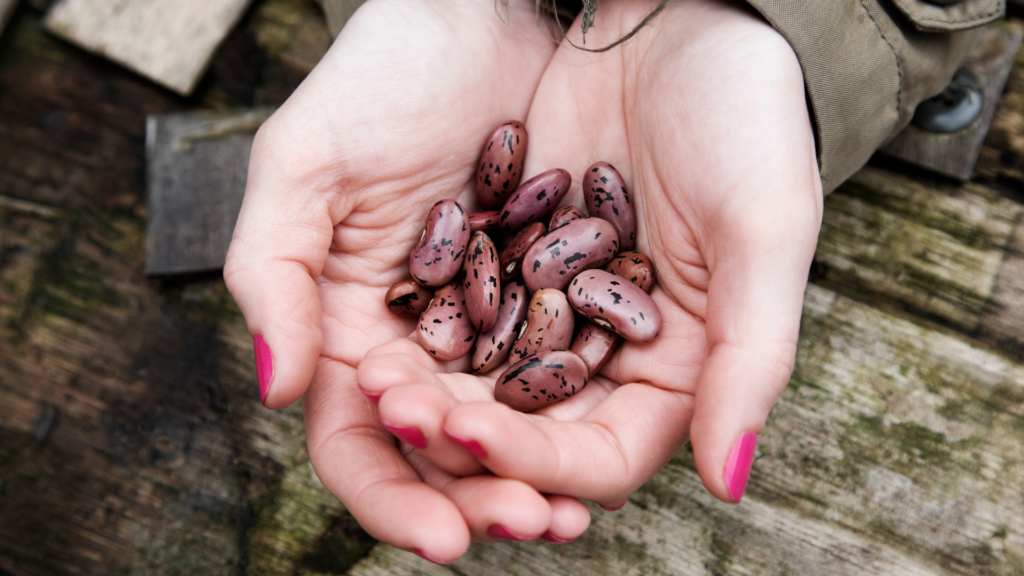Don’t judge each day by the harvest you reap but by the seeds that you plant.
– Robert Louis Stevenson –
The clean slate that rings in with a new year is often the time when many of us are inspired to reach toward new goals of self-improvement. We mark the passage of one year to the next by looking back on our bumps and bruises, endeavoring to identify how we might make our journey a little smoother. We strategize and plan, make commitments, break commitments and in general, step outside of our well-established comfort zones.
However, it is an unfortunate truth, in just a few days, weeks or months, many of us will be right back where we started—engaging once again in old behaviors—having forgotten the enthusiasm we once felt to do things in a new way.
As we all instinctively know, significant change does not occur with the flip of a switch. It is not a one-off decision we make and then all is well. New outcomes emerge, and are sustained, through successive decision-making, day-in and day-out. Substantive change requires maintaining awareness (mindfulness) in the moments when we would normally check-out and slip into unconscious, conditioned behavior. It requires dusting ourselves off and getting back on the horse, time and time again.
Real change is challenging and establishes itself over a period of time—through lots of stops and starts.
Now, I do not mean to suggest that making a commitment to reach new goals is a waste. It’s important to reflect, learn from the hindsight of 20/20 and try new ways of relating to our lives. But if we find ourselves continually looking to the future as if it will house the happiness we seek, perhaps we need to take a closer look at the intentions motivating our drive for change.
The Difference Between Goals and Intentions
Goals are oriented toward future outcomes and shaped by planning and action. They are inherently outer directed, meaning we measure the success of our goals through their materialization in our outer lives.
The challenge with anchoring our fulfillment to goals is that they do not exist in the present moment. Goals create expectations about a future that, if not achieved, can become a source of disappointment and suffering. They pull us out of the present moment, and perhaps, ever so subtly suggest that who and where we are right now is not good enough.
Intentions, on the other hand, live in the present moment. They are shaped by a personal value system and as such, are inner-directed, meaning they arise from within the internal landscape. They are the fuel behind our actions, whether we are conscious of it or not.
All Intentions Are Not Created Equal
By their nature, intentions can be healthy or detrimental. Healthy intentions, which I like to refer to as heart-based intentions, promote well-being. They are grounded in the qualities of faith, mindfulness, love, generosity, wisdom and compassion. Heart-based intentions nourish our lives and the lives of everyone around us.
Unhealthy intentions, on the other hand, are based in negative qualities such as greed, fear, delusion and doubt. These intentions are self-focused, self-seeking and perpetuate a sense of separation from others.
Fuel for the Fire
Since intentions serve as the substrate for our actions, taking time to understand our intentions is an important piece in developing and sustaining goals. What are the motivations driving us toward a goal? Are they anchored in values that are healthy for ourselves and others?
Because intentions arise in the present moment, we can check-in with our motivation at any time while working toward a personal goal. When we recognize our behavior has slipped away from our intentions, we can learn what there is to learn from our digression (without judgment towards ourselves) and get back to actions that align with our intentions.
You’ve Got to Feel It to Heal It
If we are having a hard time distinguishing the source of our motivation, insight can be gained by physically monitoring how our choices feel in the body.
The act of generosity provides a great example of how the same action can feel quite different based on the intention behind it. Consider for a moment how it feels to sincerely give to another person without any expectation of receiving something in return. Conversely, consider how it feels to give to someone when there is an expectation of reciprocation. Very different sensations, right? These bodily sensations provide useful information about the quality of our intentions.
Sometimes this type of inquiry will inform us our intentions are a mix of both wholesome and unwholesome qualities. When we recognize there is an internal conflict, we can consciously choose to refrain from actions that arise from detrimental qualities and align our actions with the intention of promoting well-being.
Return to What Matters Most
Intentions are the nutriment for every action we take. They are a moment-to-moment gauge of how close we are living to our values, and through consistent action, what we are weaving into the fabric of our lives. Anchoring into our intentions can help us stay committed to skillful action when challenging moments arise—which they inevitably will. And even in the moments when we notice our behavior has digressed from how we want to operate in the world, every recognition and realignment towards intentional action builds the muscle of living more fully aligned with our personal value system.
When we sow seeds of heart-based intentions, reaching goals begins to take a back seat to how we feel inside about what we are doing and why. Anchored in heart-based intentions, we are more likely to take life as it comes from moment-to-moment because we are focused on building a strong foundation of authentic behavior that nurtures our life. From this place, we are more inclined to experience a sense of fulfillment regardless of what our external circumstances may look like at the moment.
If you’d like to learn more about the practices and principles of mindfulness, check out our classes and workshops for opportunities to learn and grow.
Already have an existing practice? Consider joining us for ongoing practice opportunities.


 The Dance of Mindful Communication
The Dance of Mindful Communication